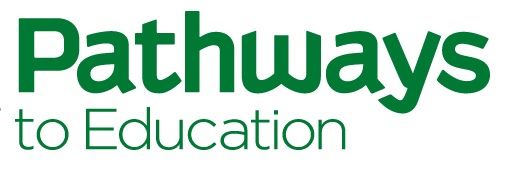High school is a critical phase of development for young people. At Pathways, we recognize that students need more than academic supports to reach their potential. That is why the Pathways Program uses a strengths-based approach to ensure that each young person feels that they are capable of achieving their goals, regardless of their circumstances.
What is a strengths-based approach to youth development?
A strengths-based approach aims to build on existing strengths and resources within the young person, their family, and the community to promote positive youth development. This approach deals with adversity through a participatory process by which young people progress through developmentally appropriate goals tailored to their strengths and abilities with the guidance and encouragement of caring adults. By focusing on what is possible day-to-day to achieve success, young people are able to develop competencies and skills that create a sense of accomplishment, create meaningful relationships, improve their ability to deal with adversity, and further their social, academic, and personal development.
Community is a critical resource.
Strengths in this approach are not developed in a vacuum. While the young person and caring adult identify strengths and goals together, recognizing and utilizing the resources available to them in the community is crucial. This way, in addition to building competencies and skills, the approach draws on community assets to develop networks of support for the young person. This reinforces their sense of belonging in the community and can create a reciprocal relationship whereby the young person is more motivated to participate in and give back to their community.
Why this approach is crucial for students now.
A study of Ontario youth revealed that since the onset of the pandemic, over half of students reported feeling depressed about their future. Similar findings have been seen across the country, making a strengths-based approach more relevant than ever to support students in communities most impacted by the pandemic.
Access to this type of personalized support helps students by:
- Nurturing self-efficacy and optimism through accomplishments and affirmations
- Building confidence and self-esteem, drawing attention to the resources that available to them, and encouraging agency.
- Empowering youth by prioritizing self-determination and supporting the development of skills and competencies that will promote positive change in other areas of their life.
Young people thrive when value is placed on who they are and where they come from. Students need access to caring adults, affirmation, and a sense of belonging in an environment that holds high expectations of them. With these conditions, they can build competencies, tap into their innate skills and ambitions, and plan for the future.
What does this look like in the Pathways Program?
The Pathways Program is a holistic combination of academic, financial, social, and one-on-one supports that is proven to remove barriers to graduation and promote positive youth development during critical high school years. Although there is substantial evidence to prove that interventions like the Pathways Program promote positive outcomes for youth, there is little information on how this work is carried out by frontline staff. That’s why our dedicated Research and Evaluation team has launched a new series called Learning from Youth Experts, designed to provide insights into youth work from Pathways frontline staff so that others may learn from their expertise.
